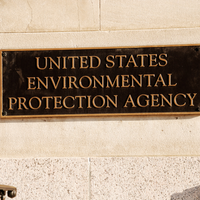bees

Science Snapshot: One Insect’s Corpse Is Another’s Breakfast
Lisa Winter | Aug 31, 2022 | 2 min read
Though it’s poetic to say that ants were grieving the bee at a funeral, the reality is a bit more prosaic.

Do Invertebrates Have Emotions?
Natalia Mesa, PhD | May 26, 2022 | 10+ min read
And how do scientists go about answering that question?

Some Bats Buzz Like Hornets to Deter Predators
Natalia Mesa, PhD | May 9, 2022 | 2 min read
The behavior is the first example of a mammal mimicking a more-dangerous species.

Dopamine Drives Bee Desires: Study
Natalia Mesa, PhD | Apr 28, 2022 | 3 min read
Like in humans, the neurotransmitter appears to play a role in generating wanting-like behavior and, perhaps, happy memories in honeybees.

Climate Change and Agriculture Together Halve Insect Populations
Dan Robitzski | Apr 21, 2022 | 2 min read
Insect populations and species diversity are drastically reduced in areas affected by both climate change and agriculture-related habitat destruction, according to a new study.

Even the Tiniest of Birds Use Smell in Some Situations
Jef Akst | Jan 4, 2022 | 4 min read
Once considered anosmic, birds are now widely recognized as using olfactory cues to aid in a wide range of behaviors.

Insects Might Be More Sensitive to Radiation than Thought
Alejandra Manjarrez, PhD | Feb 1, 2021 | 5 min read
A study of bumble bees exposed to levels of radiation equivalent to those existing in Chernobyl hotspots shows that the insects’ reproduction takes a hit.

Bee Reports over the Past Century Indicate a Loss of Diversity
Asher Jones | Jan 22, 2021 | 8 min read
An analysis of museum data and naturalists' observations finds that the number of bee species recorded has been declining since the 1990s. The first global, long-term study of bee trends adds to mounting evidence that the pollinators are in trouble worldwide.

Q&A: Global Insect Declines Due to “Death by a Thousand Cuts”
Asher Jones | Jan 15, 2021 | 7 min read
University of Connecticut entomologist David Wagner speaks with The Scientist about his biggest concerns for global insect populations and recommendations for actions to help save these tiny but important creatures.

Honeybee Microbes Shape the Colony’s Social Behavior
Max Kozlov | Jan 1, 2021 | 4 min read
Recent research shows that the insect’s microbial community is central to protecting the hive from invaders—both big and small.

Once Is Enough For Long-Term Memory Formation in Bees
Ruth Williams | May 1, 2020 | 3 min read
Honeybees can remember reward-associated odors three days after a single learning experience.

Infographic: Quick Learners
Ruth Williams | May 1, 2020 | 1 min read
Honeybees can remember reward-associated odors three days after a single learning experience.

Climate Change Linked to Drop in Bumble Bee Numbers: Study
Lisa Winter | Feb 7, 2020 | 3 min read
The rate of population decline is outpacing the ability of the bees to find a new habitat.

Engineered Microbe in Bees’ Guts Fends off Deadly Varroa Mite
Lisa Winter | Jan 31, 2020 | 2 min read
The genetically modified bacteria spark an RNAi response in the parasite that leads to self-destruction—and perhaps a path to combatting colony collapse disorder.

Amidst UK Pollinator Declines, Migrant Hoverflies Are Doing Well
Katarina Zimmer | Jun 13, 2019 | 4 min read
A decade-long study tallies the numbers of pest-eating, flower-pollinating hoverflies that travel to the UK every year, and illustrates their important ecological roles in southern Britain.

EPA Cancels Registrations for 12 Neonicotinoid Pesticides
Chia-Yi Hou | May 31, 2019 | 2 min read
The companies that market the products, Syngenta, Valent, and Bayer, are allowed to sell existing stock of the chemicals until 2020.

Artificial Intelligence Could Help Monitor Bee Health
Anna Azvolinsky | May 1, 2019 | 5 min read
A high school student designs a new beehive and gets help from machine learning to monitor for varroa mite infestation.

Pesticide Marketed as Safe for Bees Harms Them in Study
Chia-Yi Hou | Apr 12, 2019 | 4 min read
Flupyradifurone, sold as Sivanto, is reported to have greater lethal and sublethal effects on honey bees when combined with a common fungicide.

Widespread Declines in UK’s Pollinators: Study
Carolyn Wilke | Mar 26, 2019 | 2 min read
Over 30 years, one-third of the wild bees and hoverfly species surveyed sustained losses, likely due to pesticides, habitat loss, and climate change.
